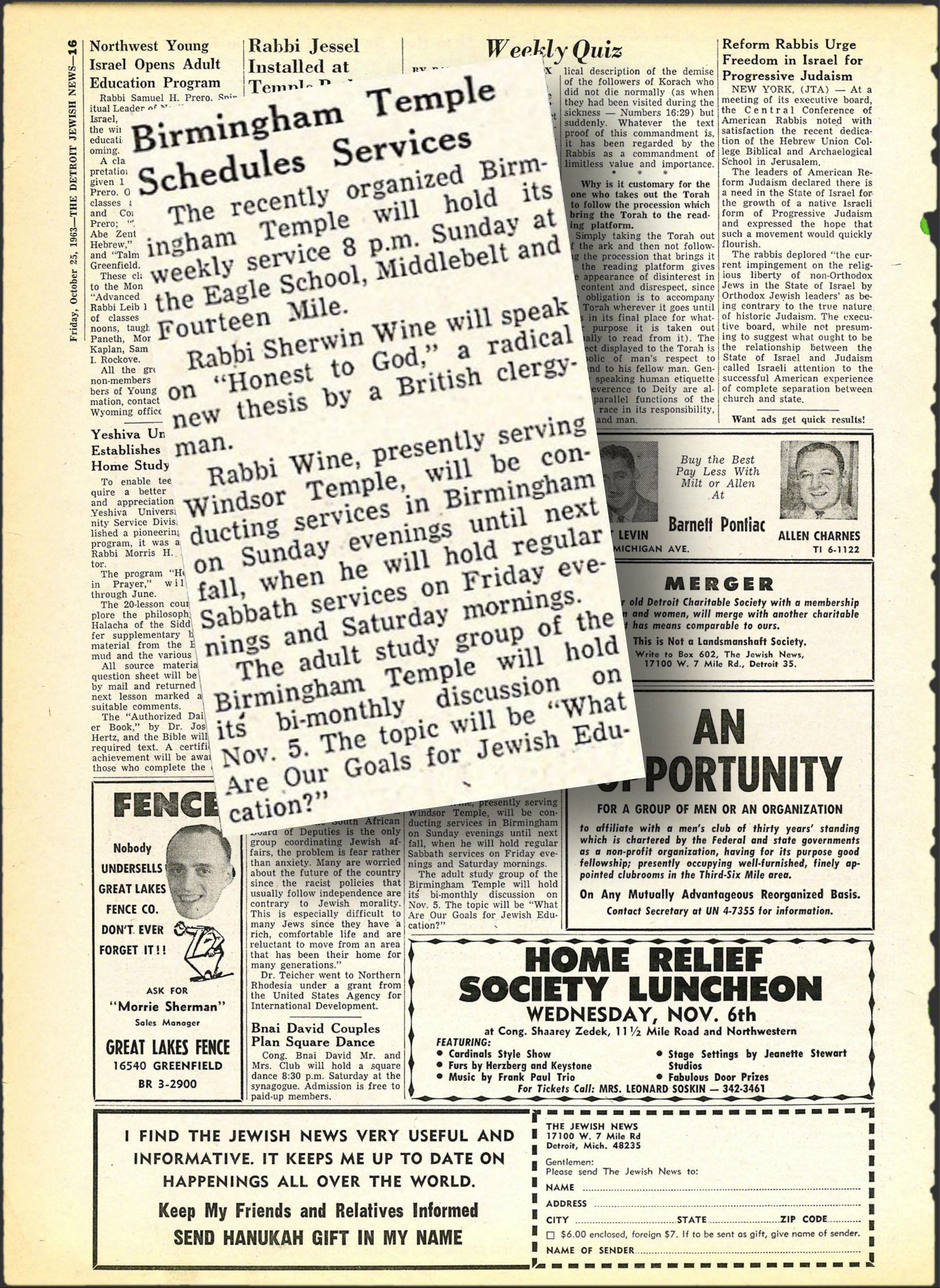Like many other synagogues, over the past few years The Birmingham Temple launched some thoughtful changes to attract new members. We replaced fixed dues with an annual pledge system. We eliminated tuition for our Sunday school.
Unlike many synagogues, we were motivated by more than an attachment to our own place. We were motivated by an abiding devotion to a distinctive approach to Jewish life, one that is promoted locally by our congregation alone. But who, judging by our name, would ever know that our distinctive approach is called Humanistic Judaism?
One of the core principles of Humanistic Judaism is that “we say what we mean and mean what we say.” This idea is largely responsible for the treasury of creative celebrations and rituals that we’ve put together over the years. We want everything we do to convey our beliefs and worldview.
While most Jews grasp pretty well what Reform and Conservative Judaism are, even here in the birthplace of our movement, Humanistic Judaism is not well understood and our congregation’s name wasn’t helping. Bearing the generic-sounding name of an unspecified type of temple in Birmingham failed to identify us as members of a unique movement. It didn’t even pass the say-what-we-mean test, considering that we’ve actually been located in Farmington Hills for close to fifty years.
Given this reality, our leaders initiated well over a year of discussions at every level exploring whether a new name could help better communicate our purposes. Our Outreach Committee sent out surveys, including one to solicit new name ideas and another to gauge support for them (or for the legacy name).
Though there was little consensus around any single proposal, a marked preference emerged for us to emphasize the words “Humanistic Judaism” in any name we chose. As it happens, this reflected decisions that were made at the birth of our temple and movement.
Archives record no meaningful discussion about our temple’s name. It was apparently just a placeholder that stuck. But what to call the movement? That was the result of deep consideration. Our movement founder Rabbi Sherwin Wine (z”l) recalled it this way:
We searched for a word that would do justice to the way we felt about life and being Jewish. “Rational” seemed too cold and limiting. “Naturalistic” seemed too abstract and philosophic ... “Humanistic” won the day because it was warm and spoke to our hearts.
“Humanistic” Judaism also met the test of time, communicating a positive and upbeat message. With survey respondents expressing enthusiasm for placing "Humanistic" front and center, it just seemed natural to adopt it as our new name.
As the congregation’s rabbi, I appreciate how the name change is already affording me new opportunities to explain who we are and what we believe. Now, rather than answering for the millionth time questions about where in Birmingham we are located and whether we’re Reform or Conservative, I get to engage a more meaningful query: “What is Humanistic Judaism?”
To this I reply that Humanistic Judaism is a movement of modern, secular-oriented Jews who, nevertheless, derive great meaning from Jewish traditions. It’s true that we don’t believe in the God of the Bible or ancient rabbis. Then again, neither do most modern Jews.
What we do believe in is the value of being part of a Jewish community where our Jewish identity exists in harmony with modern, universalist values.
We believe in creating innovative Jewish celebrations of holidays and lifecycle events where poetry and song and ritual enhance the human experience.
We believe in exploring the academically documented history of the Jews alongside the mythical legends of Jewish tradition.
We believe in “secular spirituality,” where we can express our awe of the majesty of nature and mysteries of the universe, and also celebrate the human spirit.
We believe in truly celebrating interfaith/intercultural households, in embracing people from every background, sexual orientation or gender identity, and in tearing down all of the barriers to participation in Jewish life.
We believe that our universalist and Humanistic Jewish values empower us to advocate for social justice.
And we believe that our way of being Jewish — one in which we need not check our values and worldviews at the synagogue’s door — is every bit as authentic as all the other approaches to Jewish life that have evolved over the millennia.
With our new name, we no longer need to waste precious time explaining what Birmingham has to do with any of this. Now we can move straight to telling people what we believe in.
And isn’t that one of the most important things that a synagogue’s name should do?

Comments
Sign in or become a Nu?Detroit member to join the conversation.
Just enter your email below to get a log in link.